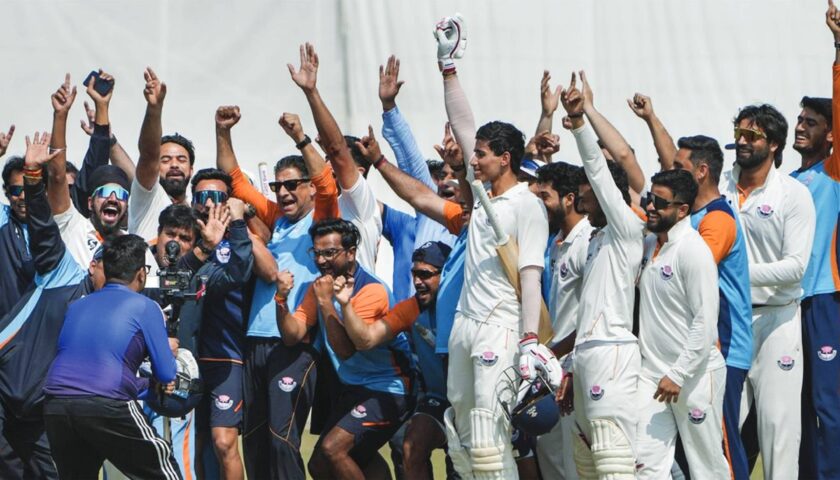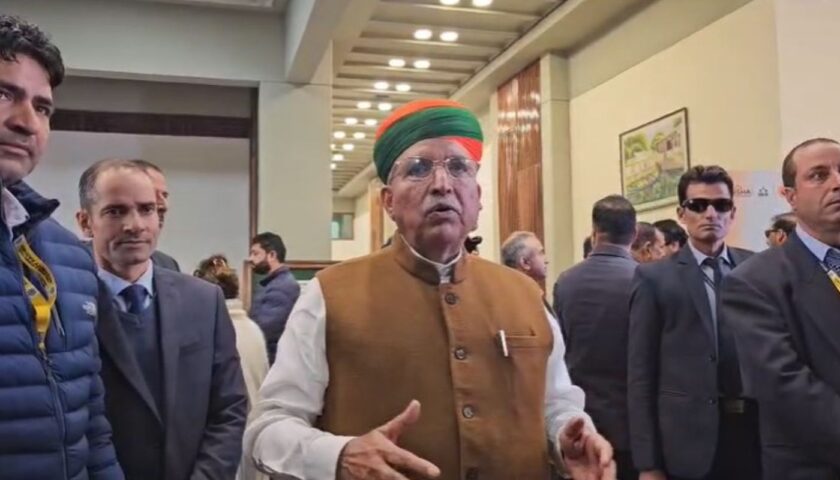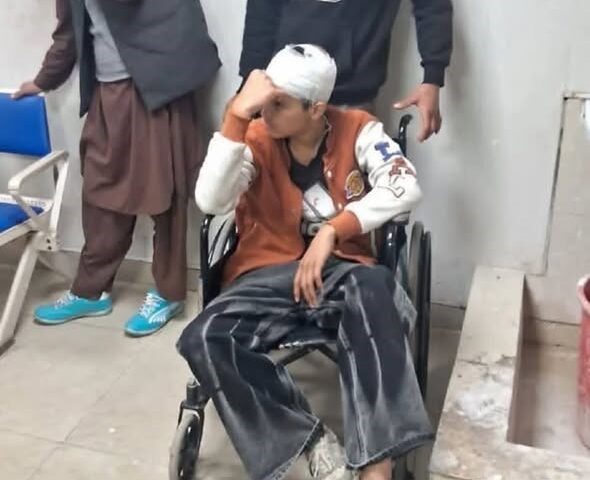Open Merit Students Protest J&K Health Department Recruitment | Reservation Row in Jammu & Kashmir 2025
By: Javid Amin | Srinagar | 30 July 2025
A New Controversy Erupts in J&K’s Recruitment Landscape
The Union Territory of Jammu & Kashmir finds itself amid another political and social storm—this time over job reservations. The government’s recent advertisement for 621 posts in the Health and Medical Education Department has sparked intense backlash, particularly from the Open Merit Students Association (OMSA).
While the notification was part of the administration’s plan to bolster medical infrastructure, the breakdown of seats has raised troubling questions about fairness, opportunity, and policy timing.
Out of the 621 posts:
-
Only 297 are allocated to open merit (general category) candidates.
-
The remaining 324 are earmarked for reserved categories including Scheduled Castes (SC), Scheduled Tribes (ST), Economically Weaker Sections (EWS), and Pahari Ethnic Group.
OMSA has described this as an “injustice to deserving candidates” and an attempt to push political reservation agendas while the reservation policy is under legal review.
Let’s unpack what’s really going on, why it matters, and what this tells us about the evolving contours of meritocracy and social justice in Jammu & Kashmir.
The Job Notification That Sparked the Firestorm
On July 26, 2025, the Health and Medical Education Department issued a job notification for 621 posts, primarily for paramedics, technicians, junior staff, and clerical positions across district hospitals, medical colleges, and rural health centers.
Seat Allocation Snapshot:
| Category | Number of Posts |
|---|---|
| Open Merit (OM) | 297 |
| Scheduled Castes (SC) | 55 |
| Scheduled Tribes (ST) | 64 |
| EWS | 60 |
| Pahari Ethnic Group | 45 |
| Other Reserved Groups | 100 |
| Total | 621 |
-
The reservation policy itself is under scrutiny by a Cabinet Sub-Committee.
-
The Law Department is still reviewing the committee’s findings.
-
There’s no clarity on how new categories (like Paharis) were integrated without completing legal codification.
OMSA Leads the Protest – “Merit is Being Crushed”
The Open Merit Students Association (OMSA), which represents general category aspirants across Jammu & Kashmir, quickly organized press briefings, petitions, and social media campaigns.
Their demands were clear:
-
Immediate withdrawal of the job notification
-
Re-evaluation of reservation percentages in light of the pending policy review
-
A constitutional and merit-based approach to future recruitments
Key Quote from OMSA:
“When only half the seats are left for open competition, how can the government claim this is fair? They are squeezing out meritorious youth to score political points.”
The group argues that open merit students face double discrimination:
-
They compete in open category with all top scorers, including those from reserved backgrounds who qualify without reservation.
-
Yet they are excluded from reserved quotas, even if marginally disadvantaged economically.
This asymmetry, OMSA argues, turns affirmative action into exclusionary action.
The Timing Controversy – A Decision Before a Verdict?
OMSA and several civil society organizations have flagged timing as the most problematic aspect of this recruitment drive.
Background:
-
In 2023–24, the J&K government formed a Cabinet Sub-Committee to review the reservation policy following legal challenges and public outcry.
-
The committee submitted its report earlier in 2025 to the Law Department.
-
The findings have not yet been made public or implemented.
So, the key question is:
Why proceed with recruitment using an uncodified, unratified, and possibly flawed reservation policy?
For many, the answer lies in political compulsions—to satisfy influential vote banks like the newly recognized Pahari ethnic group before the upcoming assembly elections.
The Pahari Reservation – Affirmative Action or Electoral Tool?
One of the biggest changes in J&K’s reservation matrix occurred in 2024, when the government granted 10% reservation to the Pahari ethnic group.
This move was celebrated by Pahari leaders as a historic correction, but deeply resented by Gujjar-Bakarwal tribes, who already enjoyed ST status.
For open merit students, this added yet another layer of reduction in available general seats. The sequence goes like this:
-
First, seats were reserved for SC/ST/EWS.
-
Then, 10% for Paharis was added.
-
Now, other politically sensitive communities (like OBCs or “disadvantaged castes”) are also demanding quotas.
This cumulative effect has left fewer than 50% of seats truly open for general competition—a tipping point that OMSA says crosses constitutional limits on reservation.
What the Constitution and Supreme Court Say
The current protest also brings legal and constitutional questions into focus.
Key Legal Precedents:
-
Indra Sawhney Case (1992) – Capped reservation at 50%, warning that excessive quotas would violate equality under Article 14.
-
EWS Judgment (2022) – Allowed 10% additional reservation for economically weaker sections, without breaching the 50% cap, as it applied to general category poor.
-
Supreme Court Observations (Various) – Repeatedly emphasized that merit cannot be sacrificed entirely for identity-based quotas.
OMSA argues that J&K’s current reservation model violates all three standards:
-
It exceeds the 50% cap.
-
It introduces new ethnic quotas without clear socio-economic data.
-
It undermines the merit principle in high-impact sectors like healthcare.
Real Implications – What This Means for Kashmir’s Youth
This issue is not just theoretical—it has real-world consequences for thousands of qualified youth in J&K.
Key Impacts:
-
Brain Drain: Many meritorious candidates, unable to secure jobs at home, migrate to Delhi, Chandigarh, or abroad.
-
Mental Health Strain: The emotional toll of repeated exam prep without selection has led to rising cases of depression and anxiety.
-
Loss of Trust: A growing number of youth believe that no amount of hard work can overcome systemic bias.
One student’s anonymous quote captures this sentiment:
“They say study hard and serve your people—but when jobs come, they hand them out based on surname, not marks.”
This frustration could turn into political mobilization, as seen in the formation of student alliances and protests, especially in Jammu, Srinagar, and Udhampur.
Government’s Silence and the Coming Electoral Fallout
Despite the intensity of the backlash, the J&K administration has remained silent—no rollback, no clarification, and no updated policy roadmap.
This silence is risky, because:
-
Youth participation in elections is surging—over 60% turnout in Baramulla and Anantnag LS polls.
-
General category students could emerge as a swing voting bloc.
-
Political parties like the BJP, National Conference, and Apni Party have yet to clearly position themselves on this issue.
The reservation controversy may become a litmus test of political credibility—are leaders listening to merit-based grievances, or only playing vote-bank politics?
Bottom-Line: Meritocracy vs. Affirmative Action – Can There Be a Middle Path?
At its core, the current controversy in J&K is not merely about a job advertisement—it is a flashpoint in the ongoing tension between meritocracy and social justice.
Yes, India needs reservation to correct historical injustices.
But:
When over half the government jobs are closed to general competition, is it really justice—or a new form of exclusion?
As Jammu & Kashmir stands at the cusp of long-delayed elections, this debate could reshape political alliances, mobilize student voters, and force a rethinking of what equality means in today’s India.




